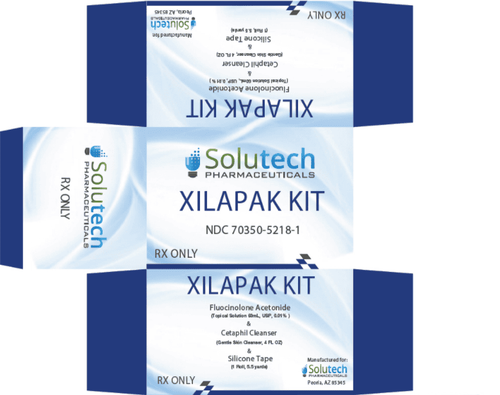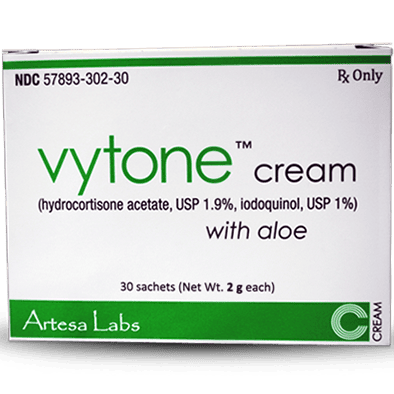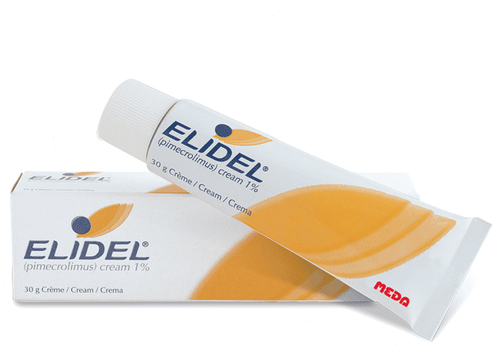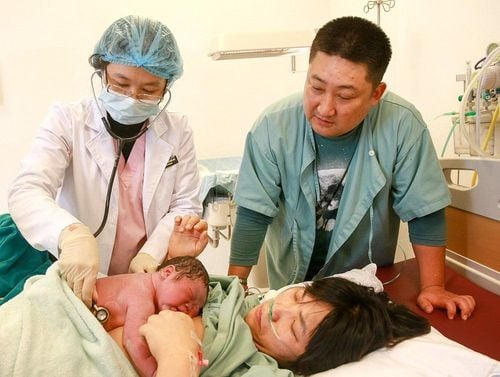This is an automatically translated article.
According to a study presented at the 2019 Annual Meeting of the American Academy of Allergy, Asthma & Immunology (AAAI), exclusive breastfeeding may not prevent eczema, but it may play a protective role in reducing the likelihood of chronic eczema. Breastfeeding may reduce the risk of eczema in children, according to new research, citing the impact of programs designed to support new mothers breastfeeding. The World Health Organization (WHO) recommends breastfeeding only for six months to help protect babies from infections, prevent allergies, and provide nutrients and energy. In this article, we will provide useful information for parents to better understand the role of exclusive breastfeeding for 3 months in reducing the risk of chronic eczema.
1. What is eczema in children?
Eczema, scientifically known as eczema, is a chronic inflammatory skin condition that causes the skin to become red, dry, scaly, and itchy.According to the survey, young children often suffer from this disease and among them, infants account for about 15%. Usually the disease will appear in the first year or before the child is 5 years old. This infectious dermatitis is actually caused by the pores on the skin being too small leading to dry skin, so the skin is more susceptible to infection. These infections may be seen as red, scaly patches of skin on the head, face, legs, or back of the arms. Eczema cannot be cured but can be controlled through treatment. Depending on the location of each child, the disease will be severe or mild, or recur many times.
2. Causes of eczema in babies.
Until now, researchers are still debating what causes eczema. Here are some causes:
Genetics and immune system dysfunction can be a contributing factor to eczema in children. If a child's family member has had eczema, there is a high chance that the child will also have eczema. Dry skin tends to be allergic eczema often occurs in children with dry red skin, skin structure pores are too tight. Therefore, young skin is more vulnerable and allows the penetration of external agents that promote skin inflammation. The destruction of this barrier leads to the abnormal immune system reactions that are characterized by atopic eczema. Eczema can be triggered by chemicals or medications, such as those found in laundry detergent. Therefore, mothers should choose for their children laundry products specifically for their baby's sensitive skin. The low humidity and dry weather of the North is also the cause of eczema in children. Blankets, clothes, diapers that have too many nylon and rough wool fibers in the process of rubbing against the baby's skin also cause the baby's skin to become red. Animal hair and dust also make eczema worse. Eczema is basically an allergic condition on the skin, so a diet with foods that cause allergies in children is also a cause.
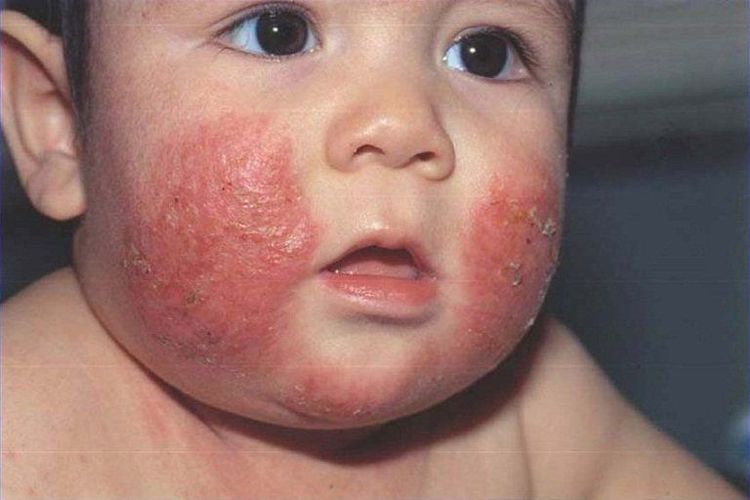
Chàm là tình trạng dị ứng trên da
3. Signs of eczema in babies.
Blisters on the skin: the baby's skin begins to have blisters that are raised on the skin and rough. Yellow discharge from the skin: Yellow fluid, or plasma, accumulates under the surface of dry skin and begins to drain when the skin condition becomes severe. The skin begins to turn red due to itching and the child scratches and rubs constantly. Small spots of pus appear due to the inability of blood circulation to turn to pus in some parts of the skin. Flu-like symptoms: because eczema affects the immune system to some extent, babies begin to have flu-like symptoms including coughing, sneezing, and increased body temperature.
4. Eczema Treatment in Children
Dermatologists will have meticulous examinations to make treatment easier. They do a thorough examination of the rashes and do a detailed medical history to determine for sure if the child has any medical conditions that could give rise to the rashes. If the eczema is red or oozing, you can apply mild antiseptic color solutions such as Milian, Eosin... If the skin lesions are dry, red, and scaly, you can apply creams. containing low-concentration corticosteroids such as Eumovate for short periods of time (7 - 10 days). When the damaged skin is dry and thickened, corticosteroid ointments or a combination of salicylic acid horny material can be used. Using topical steroids does not have much of an effect on children when they are prescribed and used in the correct dosage. Do not use high-dose antibiotics to treat eczema, unless there is a superinfection, but use extreme caution when using drugs with a prescription and a doctor's supervision. Chickenpox vaccine should not be given to children because it can lead to chickenpox-like pustules. Children with these pimples may have a high fever, blisters, blisters, eventually forming a concave pustule in the middle, observing a red inflammatory halo, leaving pitted scars when healed. The medications and therapies prescribed are based on the fact that it helps control itching, reduces inflammation, prevents new lesions from forming, and clears up infections. The most important part of doing this is keeping the baby's skin moisturized.
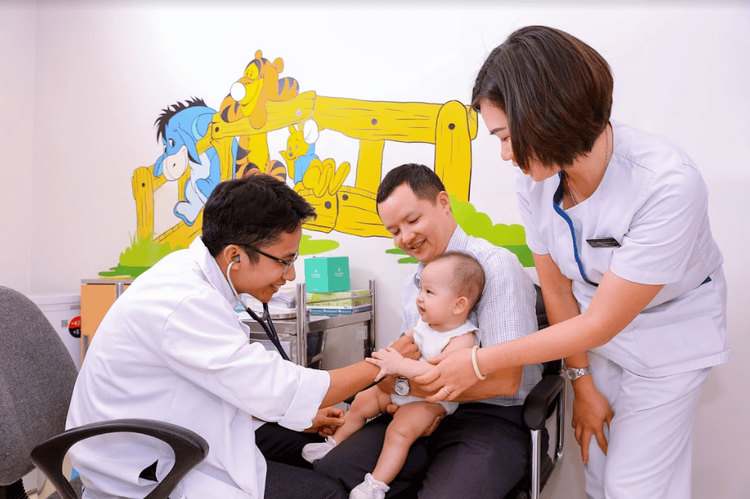
Trẻ cần được thăm khám và điều trị bởi bác sĩ chuyên khoa
5. Can exclusive breastfeeding for the first three months reduce the risk of eczema?
One of the recommendations of the World Health Organization (WHO) that exclusively breastfed babies for at least the first 6 months to protect them from infections, prevent allergies, and provide nutrients nutrition and energy for children.
Scientists at Children's National Health System in Washington, DC, examined data from a long-term study involving 2,000 pregnant women and their fetuses. The researchers recorded the women's diets during pregnancy, along with how they breastfed their babies during the first year of life. The researchers then tracked the children's health at age 6, including whether they had eczema.
The researchers found that, about 300 children who had developed eczema at some point during the study period, the children with a diagnosis of eczema were exclusively breastfed (that is, they were not breastfed). formula-fed) for at least the first three months, were half as likely to still have skin disease at age 6 as children who were not breastfed or were breastfed for shorter periods of time.
6. Home Remedies for Eczema
Parents try to create a clean, bright, dry and cool atmosphere in the house, should not use carpets, pets. If necessary, a humidifier can be installed as it will help prevent the skin from drying out. Soaps and detergents should be avoided while bathing or washing clothes as they can cause flare-ups if your child has allergies. Immediately after bathing, dry your baby with a soft towel and maybe apply a moisturizer specifically made for sensitive skin. Creams with a very low percentage of cortisone are sold over-the-counter at drug stores, you can You can buy it and use it for children when the eczema is not too big, but be careful not to use it for too long. Tight-fitting clothing, as well as clothing made of synthetic materials, should be avoided. Olive oil is a safe alternative to apply to affected areas. Pure aloe vera oil applied gently cools the itchy area and relieves symptoms. Most of these oils contain omega-3 fatty acids that help improve skin condition and reduce symptoms of eczema.
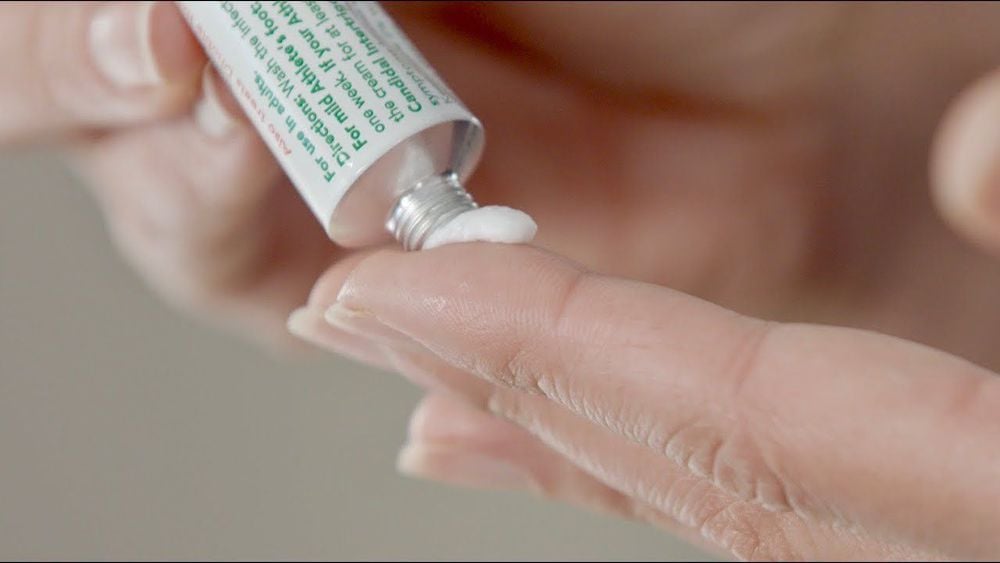
Sử dụng kem bôi giúp khắc phục chàm tại nhà
Treatment of Chronic Eczema Rashes
To prevent dry rashes, parents should make sure that your child gets a regular moisturizer. You're better off trying out a brand of lotion and choosing the one that works best for your child. Some doctors may prescribe an antihistamine (anti-allergy medicine) to induce sleep because the child may be annoyed by the itching. However, these are remedies that help relieve symptoms and do not address the root of the problem. Another treatment that can be used is bathing the baby with warm or cold water. This is because hot water can dry the skin faster. When bathing babies, use soaps that contain emollients and are fragrance-free. After the baby has finished bathing, you can apply moisturizer to the still damp skin because then the cream will absorb faster. You can then proceed to dress your child in light cotton clothing. Avoid up or thicker materials as they can increase body temperature and be very uncomfortable. Remove labels from shirts or pants to avoid skin irritation. Newly purchased clothes should be washed before wearing. Try to pay attention to the child whenever he scratches, cut his nails often to avoid the child aggravating the damage to the skin. Also, bathing your baby 5 to 10 times in diluted antiseptic water can be very effective in fighting cases of eczema. This type of water needs to be prescribed by a doctor, not arbitrarily bought for children. Soak the child directly in the bath water that has been diluted with the antiseptic solution, but be careful not to let the child drink it, then let the child out and wash it again with running water and then dry it properly. About the child's diet: If the child is still breastfeeding, continue to breastfeed and the mother needs to abstain from allergenic foods such as peanuts, soy, shellfish, egg whites. If the mother does not have enough milk to breastfeed, she must use formula milk, please choose a formula that does not contain allergenic ingredients. If you have any problems with breast milk or breastfeeding, come to Vinmec immediately to receive detailed advice from pediatricians and nutritionists on how to breastfeed effectively, diet to help. Mother has a lot of milk, lots of nutrients. The medical staff are well-trained, highly qualified, experienced, dedicated, and understand young psychology. Modern equipment, space is completely sterile to avoid cross-infection when mother and baby come to the clinic.
If you need to consult with doctors at Vinmec, please book an appointment directly at the website or contact the hotline system for detailed advice.
Please dial HOTLINE for more information or register for an appointment HERE. Download MyVinmec app to make appointments faster and to manage your bookings easily.
Reference sources: babycenter.com, dailymail.co.uk, procarevn.vn, parenting.firstcry.com




